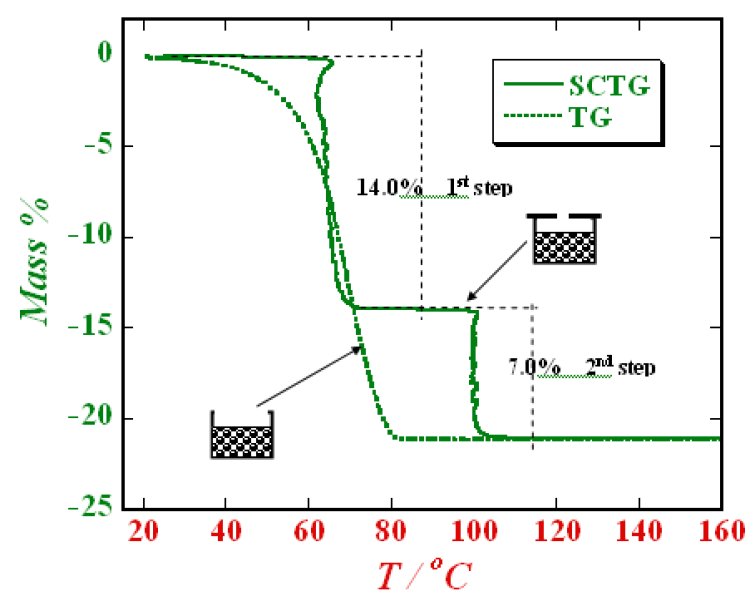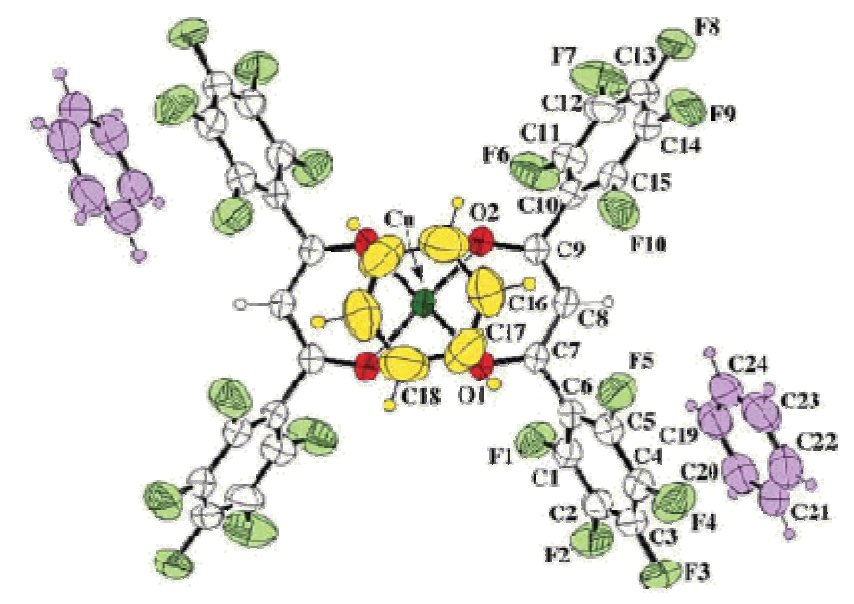Application Note TA5007
Introduction
Efficient simulation is available for the debinding process of ceramic chip capacitor using Dynamic TG.
Traditional TG-DTA can be measured by controlling temperature with time as a parameter, which has no relation with sample change. On the other hand, SCTG (Dynamic TG ) can be measured by controlling temperature with sample amount change as parameter. Comparing Dynamic TG to traditional TG-DTA, it is possible to measure with enhancing the resolution and prompting gradual reaction of sample.
We observed the difference of thermal desorption for three benzene molecules that combined with a metallic complex due to different electrostatic interactions.
Instrument TG-DTA8121
The horizontal differential triple-coil balance system boasts a proven track record for mass-change measurements. It corrects or cancels various types of fluctuations that can be cause drifts. Combined with the newly developed electric circuits, it achieves low noise and excellent baseline stability.
Dynamic TG
Dynamic TG is a sample controlled thermogravimetry where the rate of the sample’s mass loss is set as a parameter while controlling the temperature.
Measurement and analysis
A comparison between two TG curves which measured in different methods is shown in Figure 1. From the open pan, dash line, the TG measurement can't be observed the difference of bonding state which corresponds to 3 benzene molecules is shown as just one step of mass loss.
On the other hand, sample controlled TG (SCTG) measurement, solid line, can be clearly observed two steps of mass loss which in lid with pan including pinhole as pseudo sealed pan. Here, the SCTG is controlled the mass loss rate on constant. The measurement results show that the benzenes in metallic complex is desorbed two molecules first and then a molecule is desorbed, and furthermore, those desorption temperatures are deferent, hence the results, the bonding energies are clearly different.
From the study of single crystal structure analysis by X-ray diffraction, two kinds of benzenes with the electrostatic interaction are belonging to one molecule for the cation-π and two molecules for the arene-perfluoroarenet is shown in Figure 2. Thus, the result is confirmed by good agreement with the measurement result of SCTG.

Figure 1: A comparison of thermal desorption of benzene from complex by two different TG measurements (TG: heating rate 5℃/min, SCTG: mass loss rate 0.07%/min).

Figure 2: ORTEP structure of single crystal Cu(II)fluorine-substituted β -diketonate complex・3C₆H₆

